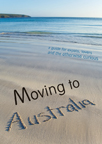If you’re like me, you love good deals and saving your funds. Here are my money-saving tips for Australia:
1. Get an Entertainment Book. Every April, companies and charitable organizations sell these books to raise money for their causes. For AUD 65 you can get a book for your city and I assure you that if you go out to restaurants, movies and other forms of entertainment anyway, or if you travel within the country, the book will more than pay for itself. You’ll receive a gold Entertainment Card to use for discounts (usually 25 per cent) in fine dining establishments, and vouchers for discounts (usually 25 per cent or two-for-one) at cafes, bistros, casual and fast food restaurants as well as coffee shops and takeaway outlets. The book also contains vouchers for everything from the ballet to sporting events to movie tickets to zoos and tourist attractions. You’ll also get corporate-type discounts on hotels and car rentals and discounts on magazines, nationwide florists and many other products and services.
2. Shop during the sales. While you will find mid-season retail sales, especially when the economy isn’t doing very well, most of the sales occur twice a year: after the Christmas holidays and just before the end of the financial year.
3. Sign up for your favourite stores’ rewards cards. Many of the large nationwide retail chains have their own loyalty rewards programs. These generally allow you to accumulate points for your spending and earn store gift cards, merchandise and/or other privileges. Two popular programs are FlyBuys and MyerOne. You can f ind credit cards with rewards programs with Reward Program Credit Card finder.
4. Don’t forget about your favourite overseas retailers online. It can often be cheaper to purchase items like books and cosmetics online, despite the shipping fees. I still place orders from Amazon.com and I also order beauty products from a company called StrawberryNet. If your favourite overseas retailer doesn’t ship internationally but they will take your overseas credit card, you can use a service like vPost to have your goods shipped to a US, UK or Japan address and then forwarded to your address in Australia. Two other services to consider are comGateway and borderlinx.
5. Look for savings days. Movie theatres usually have one day a week when ticket prices are significantly reduced. Pubs often have lunch and dinner specials depending on the day of the week. Keep an eye out for these kinds of deals at the places you frequent and take advantage of them.
6. Shop around. This tactic works anywhere in the world and it applies to everything from interest and mortgage rates to appliances. Get into the habit of enquiring with at least three vendors before you make a purchase. You can usually use competitors’ prices to negotiate deals with other suppliers. You can find the major retailers’ catalogues on Lasoo.
7. Cut down on little extras. Pack your lunch when you go to work instead of buying it. Use the library. Take tea and coffee to work instead of buying it at the café. Turn lights off when you aren’t using them. Buy generic brands of sugar, flour and other basics. All these extra dollars add up.
8. Use eBay. Buy items at low prices and sell your unwanted stuff as well. Australia has its own site.
Check out FrugalAussies where around 300 Australian residents share their tips for saving money for more ideas.
Are you emigrating to Australia? Want to learn more about the financial aspects of your move?
 Packed with helpful resources, anecdotes and advice, the Moving to Australia eBook is an excellent guide to those seeking information about migration to Australia. Whether you want to work in Australia long-term or just have a working holiday in Australia, this book will assist you with all aspects of your journey. All Australian visas are also outlined, such as skilled immigration visas, student visas and visas for those who have already found jobs in Australia.
Packed with helpful resources, anecdotes and advice, the Moving to Australia eBook is an excellent guide to those seeking information about migration to Australia. Whether you want to work in Australia long-term or just have a working holiday in Australia, this book will assist you with all aspects of your journey. All Australian visas are also outlined, such as skilled immigration visas, student visas and visas for those who have already found jobs in Australia.
Click here NOW to get the Moving to Australia eBook, the ultimate guide for expats in Australia.


